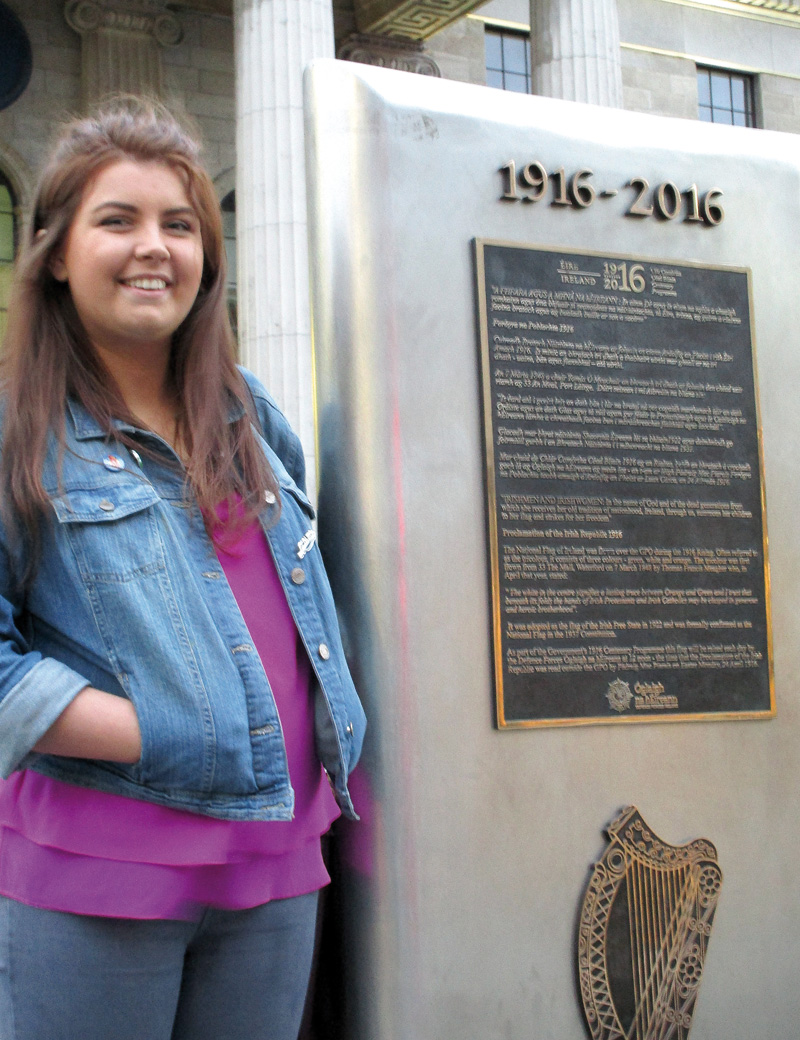
The mystery of the origin of the Basque country has intensified with the hand of Irulegi. For me, the discussions on this hand are being nice, because we reiterate that history sometimes flees from the logic we establish from the present and is as human as the people who participate in it. But quiet, this will not be another article on Irulegi's hand.
The truth is that, before the hand of Irulegi assumed the deserved prominence, the title "the first words in Basque" had other nice words: jziqui dugu / guec ajutuak are the couples. Until recently, these phrases, classified as gloss from San Millán, were the oldest ones we knew in Basque. A codex from the end of the 10th century or the beginning of the 11th, that is, one of those mediaeval bookshelves written by hand and in Latin, appear in a corner, as it seems, pointed out by a copist monk to better understand what was written in Latin.
It wasn't uncommon to write in caves. Sometimes they were small warnings to better understand the text, sometimes simply copists, who even got bored, pointed their accounts, drew or wrote poems from their people. All these texts are called marginalia.
A few months ago, I read the Spanish translation of the book How Irish Saved Civilization. It tells an interesting story, the fundamental role of the Irish in the transmission of the knowledge of classical civilization. The Irish friars appear, in principle, to be their main copiers of all the ancient manuscripts written in Latin and Greek; and, consequently, we can say that it is because of the Irish, who saved those documents from loss, from the continuity of what we call Western culture and even civilization.
In 1800, Gaelic monolinguals were 800,000. In 1911, 17,000 remained. Cill Ghallagáin, the last monolingual deceased in 1998
All these Irish clerics also had the habit of writing on the edges of the manuscripts, in their language, naturally in Gaelic. For example, under the description of the death of Hector de Troya, the copist, excited, wrote: "I've been sad about the aforementioned death." Another young copist: "In the middle of summer he found a girl in the grove. He offered him a hillside full of mulberries. He gave him strawberry hugs." And another: "Everyone wants to know who Aide's ruin is going to sleep with. All I know is that Aideen will never sleep alone."
The truth is that Gaelic was not used only on the margins. In the manuscripts there are also Irish grammar, and there's a lot of oral literature, and they say it's the language that keeps the oldest texts related to popular literature. Now, the language used by those pioneers is known to few people, let alone speaking.
As the linguist Yásnaya Aguilar says, there are many reasons to learn to speak one language, but only one to stop speaking: the discrimination suffered by the speakers of that language. In the case of the Irish, the violent colonization of England is hidden. In 1800, Gaelic monolinguals were 800,000. In 1911, 17,000 remained. In 1998, Cill Ghallagáin, the last monolingual, died.
Today, it is estimated that people who are able to understand those words written on the edges of the important texts of the West are about 260,000. However, although cultural substitution is almost complete, the battle must be surrendered to the end. That is also what the Irish know.
Martxoaren 11n hasi dute gaeliko irlandarraren aldeko Rith ekimena. Irlandako osoa goitik behera zeharkatuko du astebetez; Belfastetik Kerryra. Guztira, 500 kilometro baino gehiagoko ibilbidea antolatu dute bosgarren ediziorako. Rith hitzak “korrika egin” esan nahi... [+]
Gaeliko hiztunen eskubideak babesteko araudia eskatzen dute. Manifestazioa otsailaren 1ean egin zen.
Lehen ministroak kanpainan esan du Alderdi Demokratiko Unionistak ez duela inoiz gaelikoaren aldeko planik onartuko.
Hizkuntza gutxituen zikloan aragoiera, katalana eta Irlandako gaelera ezagutzeko aukera ere izango da.
BBC Erresuma Batuko hedabide publikoak Irlandako gaelerari emaniko tratua salatu dute hizkuntzaren aldeko ekintzaileek; hamarnaka lagunek elkarretaratzea egin dute komunikabideak Belfasten duen egoitza kanpoan, eta kexa ezarri diote.
Gaeliko irlandarraren aldeko Rith martxoaren 4an abiatu da. 1000 kilometro baino gehiago egingo dituzte 11 egunez luzatuko den Korrikan. Rith-ek gaelikoz ‘korrika egin’ esan nahi du, Cill Droichead-en hasi da (Kildare) eta Dublinen amaituko da. Euskararen aldeko... [+]
The Irish regions where there is more talk of Gaelic are also in a critical situation. The study looks at how children who work in Gaelic at home are developing in bilingual schools, and data indicate that they are better able to master English than their language.
The Irish... [+]
Gaelikoa gehien hitz egiten den Irlandako eskualdeetan ere larri dabiltza. Etxean gaelikoz aritzen diren haurrak eskola elebidunetan nola moldatzen diren aztertu dute, eta datuek diote ingelesa hobeto menperatzen dutela, euren hizkuntza baino.
Gaur goizean hasi da Rith lasterketa, Gaelikoaren alde Irlandan egiten duten Korrika.
Irlandako Errepublikako eta Ipar Irlandako Gobernuei eskatu diete gaeliko irlandarra erabiltzeko herritarrek duten eskubidea errespeta dezatela. Milaka pertsona atera ziren kalera larunbatean Dublinen, hizkuntzaren normalizazioaren alde lanean ari den Conradh na Gaeilge... [+]





















